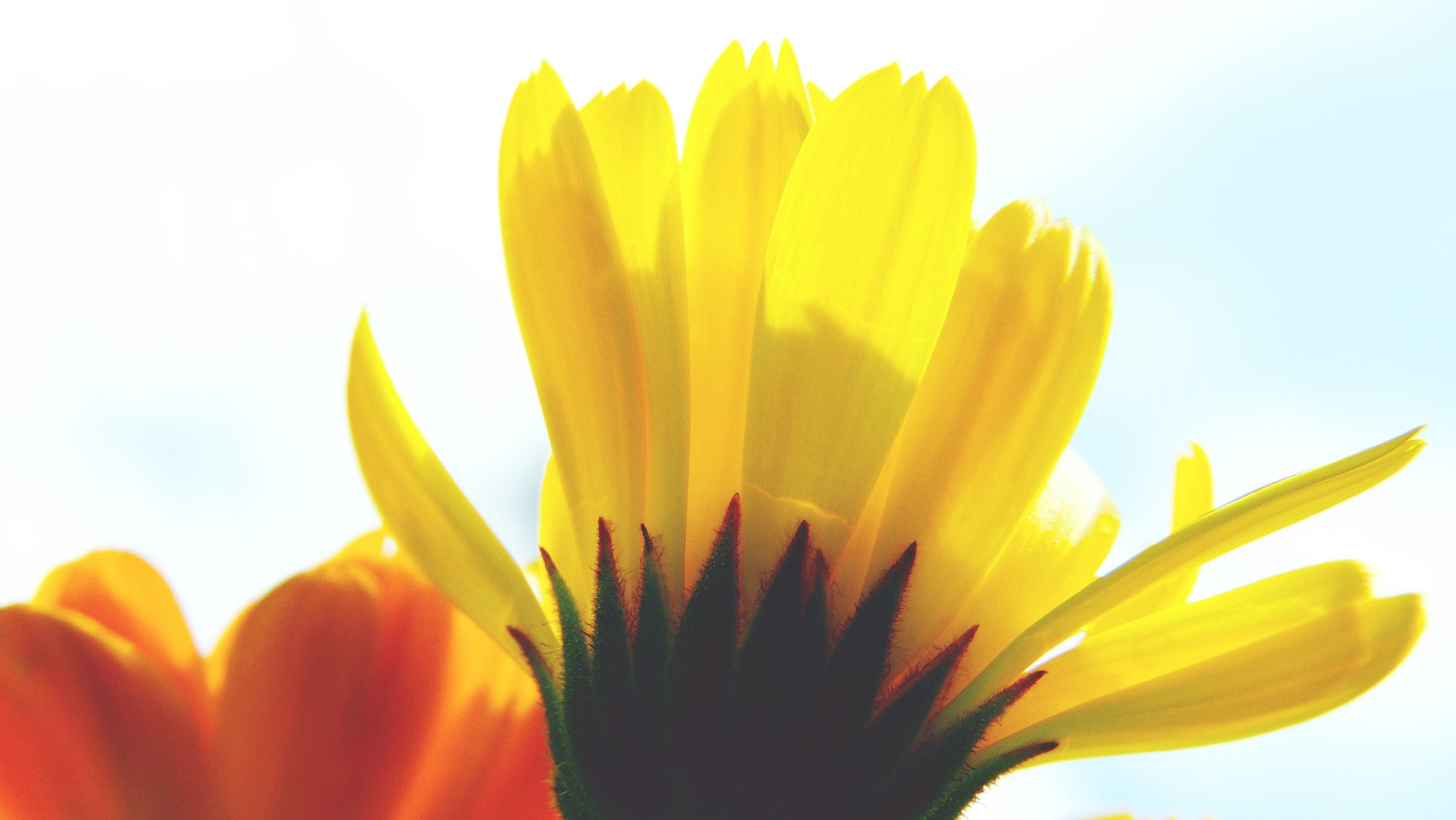Uncategorised Article Count: 1
Administration Article Count: 6
Aromatherapy USA Administration
Welcome to the administrative section of AromatherapyUSA.com. Here, you'll find helpful information about our organization, including who we are, various ways to contact us, and comprehensive responses to frequently asked questions. We aim to provide you with all the support and information you need to enhance your experience with learning about aromatherapy and using essential and carrier oils.
Enjoy!

Natural Healing Article Count: 0
Natural Healing with Aromatherapy
Aromatherapy is a holistic practice that uses natural oils from plants to promote physical and mental well-being. Each oil has its unique scent and potential health benefits derived from various plants' flowers, seeds, leaves, and roots.
Origins and Evolution: The use of aromatic plants dates back thousands of years, with records showing the ancient Egyptians utilizing these oils for cosmetics, medicine, and even embalming. The concept was embraced by the traditional medical community in the early 20th century, first in France and England, and has since been adopted by holistic practitioners worldwide.
The Science Behind the Scent: Aromatherapy primarily uses smell and skin absorption. Inhaling the scents can directly affect the brain's emotional center, while applying oils to the skin allows for absorption into the body, offering its own benefit.
Exploring Different Oils: Every essential oil has its own special characteristics. For example, lavender is well-known for its relaxing effects, peppermint for boosting focus and energy, eucalyptus for respiratory health, and tea tree oil for its antiseptic properties.
Customizing Your Experience: There's no one right way to use aromatherapy. It can be personalized to fit individual needs and preferences through diffusers, body oils, creams, or baths. The key is to find what works best for you.
Practicing Safe Aromatherapy: While essential oils are natural, they're also potent. It's important to use them correctly and safely. This means understanding how to dilute them, being aware of possible skin reactions, and consulting with a healthcare professional if you're pregnant, nursing, or have existing health conditions.
Aromatherapy offers a natural way to enhance both physical and mental health. As we learn more about these oils and their effects, aromatherapy offers a gentle yet effective path to well-being. Whether you're looking for relaxation, a mood boost, or physical relief, aromatherapy can be a valuable and enjoyable part of your daily routine.

Aromatherapy Article Count: 18
The Essence of Wellbeing: Exploring Aromatherapy
Aromatherapy is a holistic healing practice that employs the potent essences of plants, known as essential or absolute oils, to foster healing and enhance well-being. It uses these oils as a natural and alternative medicine to heal and enrich your everyday lifestyle.
The Power of Plant Essences: At its core, aromatherapy is about tapping into the concentrated power of nature. Essential oils are extracted from various parts of plants, including flowers, leaves, bark, and roots, each carrying unique therapeutic properties.
A Spectrum of Healing: Aromatherapy is often seen as a preventative approach, helping to balance and maintain the body’s natural state. It's known for a wide range of benefits. It can alleviate aches and pains, accelerate the healing process, and relieve anxiety, stress, and tension. Additionally, it promotes relaxation, reduces inflammation, and can even enhance mood and cognitive function.
Engaging the Senses: The practice engages our sense of smell and skin absorption. When inhaled, the aroma molecules from essential oils interact with the brain, particularly affecting the limbic system, which is associated with emotions, heart rate, blood pressure, breathing, memory, stress, and hormone balance. When applied topically, these oils can offer more localized benefits and are often used in massages and skincare.
Tailoring to Your Needs: Aromatherapy is highly individualistic. What works for one person might not work for another. It’s about finding the suitable oils and methods that resonate with your body and mind, whether through diffusing oils, applying them topically, or incorporating them into baths or personal care products.
Safety First: While natural, essential oils are highly concentrated and should be used carefully. Proper dilution, knowledge of potential skin sensitivities, and understanding the contraindications are crucial. Conducting a patch test for topical applications and consulting with healthcare professionals, especially those who are pregnant, nursing, or have existing health conditions, is always recommended.
Aromatherapy offers a gentle yet profound way to support the body's natural healing processes and promote balance and well-being. It's an art and science that connects us more deeply to the healing powers of nature and, when used responsibly, can be a rewarding part of a holistic approach to health and happiness. As we continue to explore and understand the benefits and applications of aromatherapy, it stands as a testament to the enduring relationship between nature and human health.
About Aromatherapy Contents on This Site
The Aromatherapy category is the overall category on the site containing helpful how-to information on aromatherapy, from beginners' guides on how to start using essential oils, how-to select essential oils, recipes to create your blends, differences between ingredients, and articles on topics that may be beneficial for certain conditions. You can begin in this area to gain an overall understanding of aromatherapy.
If you want to begin by looking first at the specific ingredients that are used in aromatherapy, you can review the Essential Oil category or the list of Carrier Oils used to incorporate essential oils.

Essential Oils Article Count: 32
The Potent World of Essential Oils
Essential oils are the distilled essence of plants, capturing their most potent and aromatic properties. Extracted from the roots, leaves, stems, seeds, blossoms, or flowers, each oil embodies the unique therapeutic properties of its source plant.
Plant Power in Every Drop: These concentrated liquids are more than just fragrances; they are the plant's life force in a highly concentrated form. Each essential oil has therapeutic properties, offering a natural remedy to various ailments, enhancing physical well-being, and creating a more relaxing environment in your home or workspace.
A Multitude of Uses: The beauty of essential oils lies in their versatility. The type of oil you choose depends on the specific healing or atmospheric effect you seek, as different oils have different benefits. They can be used in various ways:
- Aromatherapy: When diffused, their scents can purify the air, uplift moods, or create a calming atmosphere.
- Topical Application: Mixed with carrier oil, they can be applied to the skin to promote healing, reduce inflammation, and relieve tension.
- Massage Therapy: Incorporated into massages, they can deeply penetrate to soothe muscles and enhance relaxation.
- Baths: Added to bathwater, they can transform a simple soak into a therapeutic experience.
- Personal Care: Incorporated into candles, soaps, and other products, they bring natural benefits and scents to everyday items.
Tailoring to Your Needs: Selecting the right oil is key. Lavender, for instance, is known for its calming properties, while peppermint stimulates and revitalizes. Tea tree oil is famed for its antibacterial and antifungal qualities, and eucalyptus is a go-to for respiratory health. Understanding the properties of each oil will help you make an informed decision about which to use for your specific needs.
Mindful Practices: While essential oils offer many benefits, they should be used carefully and respectfully. Always dilute them properly when applying topically to avoid skin irritation, and be aware of any specific contraindications. It's also wise to perform a patch test before widespread use and consult with a healthcare professional if you have underlying health conditions or are pregnant or nursing.
Essential oils provide a direct link to the healing and aromatic power of nature. Whether you're seeking to heal, uplift, or simply enjoy the fragrances of nature, essential oils offer a versatile, natural, and effective way to enhance your physical and emotional well-being. As we discover more about these potent extracts, their place in holistic health and everyday life becomes more essential.
About Essential Oil Contents on this Site
The Essential Oil category contains specific information on a list of available essential oils used to mix with carrier oils. You can begin in this area by looking for information on the essential oils you have in mind or look for a list of carrier oils in that specific category, or you can begin in the area of the general area of interest called the aromatherapy category.

Carrier Oils Article Count: 8
The Essential Role of Carrier Oils in Aromatherapy
Carrier oils play an indispensable role in aromatherapy. Derived from plants, these oils are the foundation for safely using the potent essences of essential oils. Here's a closer look at why carrier oils are vital and how to choose the right one for your needs.
Safeguarding Your Skin: Essential oils are incredibly concentrated and too intense for direct skin contact. Undiluted can lead to irritation or adverse reactions. Carrier oils dilute these potent extracts, making them safe for topical application. They ensure you can enjoy the benefits of essential oils without risking skin discomfort.
Diverse Bases for Aromatherapy: While the term 'carrier oil' suggests a liquid state, carriers in aromatherapy aren't limited to just oils. Cream or lotion can also act as bases. However, oils are preferred for versatility, smooth application, and effective absorption. They're particularly favored for massage and skin applications, where their natural slip and moisturizing properties shine.
Neutral Aroma for Enhanced Blending: Most carrier oils are selected for their mild or virtually nonexistent scent. This neutrality ensures they don't overpower or alter the therapeutic properties and fragrances of the essential oils they're paired with. Their primary role is to carry and dilute, not to compete with the essential oil's natural aroma.
Tailoring to Your Treatment: Most aromatherapy blends comprise about 98% carrier oil, so selecting the right one is crucial. Carrier oils offer various therapeutic properties, absorption rates, and shelf life. For instance:
- Jojoba Oil: Closely mimics the skin's natural oils, making it an excellent moisturizer for most skin types.
- Coconut Oil: Offers a thicker consistency and longer shelf life, ideal for body butter and balms.
- Sweet Almond Oil: A popular choice for its lightweight and easily absorbable nature, suitable for many skin types.
- Grapeseed Oil: Known for its light texture and anti-inflammatory properties.
Carrier oils might not get the same attention as their essential oil counterparts, but their role is just as crucial. They provide the safe, effective, and enjoyable use of essential oils through dilution, offering a neutral base that allows the essential oils' properties to shine. Understanding and choosing the right carrier oil can significantly enhance your aromatherapy experience, ensuring safety and maximizing benefits. Whether you're a seasoned practitioner or new to the world of essential oils, respecting and utilizing the power of carrier oils is key to any successful aromatherapy practice.
About Carrier Oil Contents on this Site
The Carrier Oil category contains specific information on a list of available oils used to mix with essential oils. You can begin in this area by looking for information on the carrier oils you have in mind or look for a list of essential oils in that specific category, or you can begin in the area of the more general area of interest called the aromatherapy category.
Perform a Patch Test Before Using
You should perform a patch test if you are new to using aromatherapy and essential oils or are concerned about any reactions you may have. Mix a tiny amount (2 drops) of essential oil with about 1/2 teaspoon carrier oil. Always follow the manufacturer's guidance. Apply a small amount to your inner arm area with a cotton swab. Apply a bandage to cover the area and keep it from getting wet.
If you react, you will notice within 24 hours. Signs of a reaction may be redness or itchy skin. Do not continue using any substance that results in an allergic reaction.





